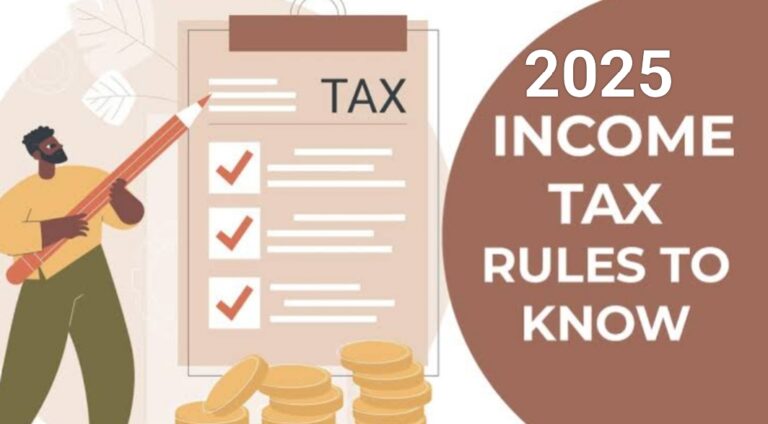The Income Tax Return (ITR) filing season for Assessment Year 2025-26 is in full swing. Over 79 lakh taxpayers have already filed their returns. With the deadline set for September 15, 2025, it’s crucial to be aware of key income tax rules—not just to save taxes, but also to avoid unwanted notices from the tax department.
While most individuals rely on tax consultants or CA services to file their returns, having personal knowledge of certain lesser-known tax rules can help you stay compliant and optimise your tax-saving strategies.
Here are 20 surprising and lesser-known income tax rules every Indian taxpayer should know in 2025:
1. Gifts Over ₹50,000 from Friends Are Taxable
Received gifts exceeding ₹50,000 in a year from friends or non-relatives? The entire amount becomes taxable under the Income Tax Act. However, gifts from relatives like parents, spouse, siblings, or children are entirely tax-free, irrespective of the amount.
2. Paying Rent to Parents? You Can Claim HRA
If you live in a property owned by your parents and pay them rent via bank transfer or cheque, you can claim House Rent Allowance (HRA). But remember, your parents must report this rental income in their tax return.
3. Cash Loans or Repayments Above ₹20,000 Are Illegal
As per Sections 269SS and 269T, taking or repaying any loan or deposit of ₹20,000 or more in cash—even from friends or relatives—is strictly prohibited. Such transactions can attract a 100% penalty. Always use digital modes for such amounts.
4. Cash Payments Above ₹2 Lakh Are Prohibited
Buying a vehicle, land, jewellery, or any item worth more than ₹2 lakh? If you pay in cash, you violate Section 269ST, inviting heavy penalties for the seller.
5. PAN Card is Mandatory for Jewellery Purchase Over ₹2 Lakh
Whether you pay by cash or card, purchasing gold or jewellery worth more than ₹2 lakh requires you to furnish your Permanent Account Number (PAN) as per income tax rules.
6. Tuition Fee for Children Eligible for 80C Deduction
You can claim a deduction of up to ₹1.5 lakh under Section 80C for tuition fees paid for up to two children, even for private school or college education. However, this benefit is available only under the old tax regime.
7. Scholarship Income is Fully Tax-Free
Scholarships received by students for educational purposes are entirely exempt from tax, regardless of the amount.
8. Minor Child’s Income is Clubbed with Parent’s Income
Income earned by your minor child from sources like savings accounts or fixed deposits gets added to your income. You can claim an exemption of ₹1,500 per child per year for up to two children. Once they turn 18, their income is treated separately.
9. Freelancers & Professionals Can Claim 50% as Presumptive Expenses
Self-employed professionals like doctors, CA, lawyers, writers, etc., can opt for the Presumptive Taxation Scheme (Section 44ADA), declaring 50% of gross income as expenses without the need to maintain detailed records.
10. Home Loan Interest Deduction Even on Rented Property
Even if your property is rented out, you can still claim a deduction of up to ₹2 lakh on interest paid on the home loan under Section 24(b).
11. Donations Above ₹2,000 in Cash Not Eligible for Deduction
To claim a deduction under Section 80G, donations exceeding ₹2,000 must be made via cheque, bank transfer, UPI, or other digital modes. Cash donations above this limit do not qualify for tax benefits.
12. You Can File Updated ITR Within 3 Years
Made a mistake in your return or missed declaring income? Under Section 139(8A), you can file an Updated ITR within 3 years of the relevant assessment year. However, additional tax and interest may apply.
13. Agricultural Income is Tax-Free, But Impacts Tax Slab
While agricultural income is tax-exempt, it is considered to compute your overall tax slab if your non-agriculture income exceeds ₹5,000. This can push you into a higher tax bracket.
14. Selling Old Jewellery or Gold Attracts Capital Gains Tax
Profits earned from selling gold, diamonds, jewellery, or even expensive watches are subject to capital gains tax, as these are treated as capital assets.
15. Forming an HUF Can Help You Save Tax
Creating a Hindu Undivided Family (HUF) allows families to enjoy a separate PAN and tax deductions. It is a smart way to reduce overall tax liability, especially for those with inherited wealth or joint family income.
16. Extra Deduction for Health Insurance of Senior Citizen Parents
Paying for your parents’ health insurance? If they are aged 60 or above, you can claim an additional deduction of up to ₹50,000 under Section 80D, even if they are not financially dependent on you.
17. Paying Rent in Cash Over ₹5,000? Landlord’s PAN Required
If you claim HRA and pay monthly rent over ₹5,000 in cash, the income tax department may demand the landlord’s PAN and a valid rent agreement to approve your deduction.
18. Large Cash Transactions Are Monitored
The tax department keeps an eye on high-value cash transactions:
- Cash deposits over ₹10 lakh/year in savings accounts
- Deposits or withdrawals over ₹50 lakh/year in current accounts
- Credit card bill payments exceeding ₹1 lakh in cash
Such transactions are reported by banks to tax authorities.
19. TDS on Large Cash Withdrawals
If your total cash withdrawals from bank accounts exceed ₹1 crore in a financial year, banks will deduct TDS at 2%. For those who haven’t filed ITR for the last 3 years, the limit drops to ₹20 lakh, attracting TDS.
20. Income from Inherited Assets is Taxable
While inheritance itself—money, land, or property—is tax-free, any income generated from these assets, like rent, interest, or capital gains, is fully taxable.
Final Words
Being aware of these little-known income tax rules can help you avoid penalties and save significant money legally. Stay updated, file your returns accurately, and consult a qualified tax expert when in doubt.
